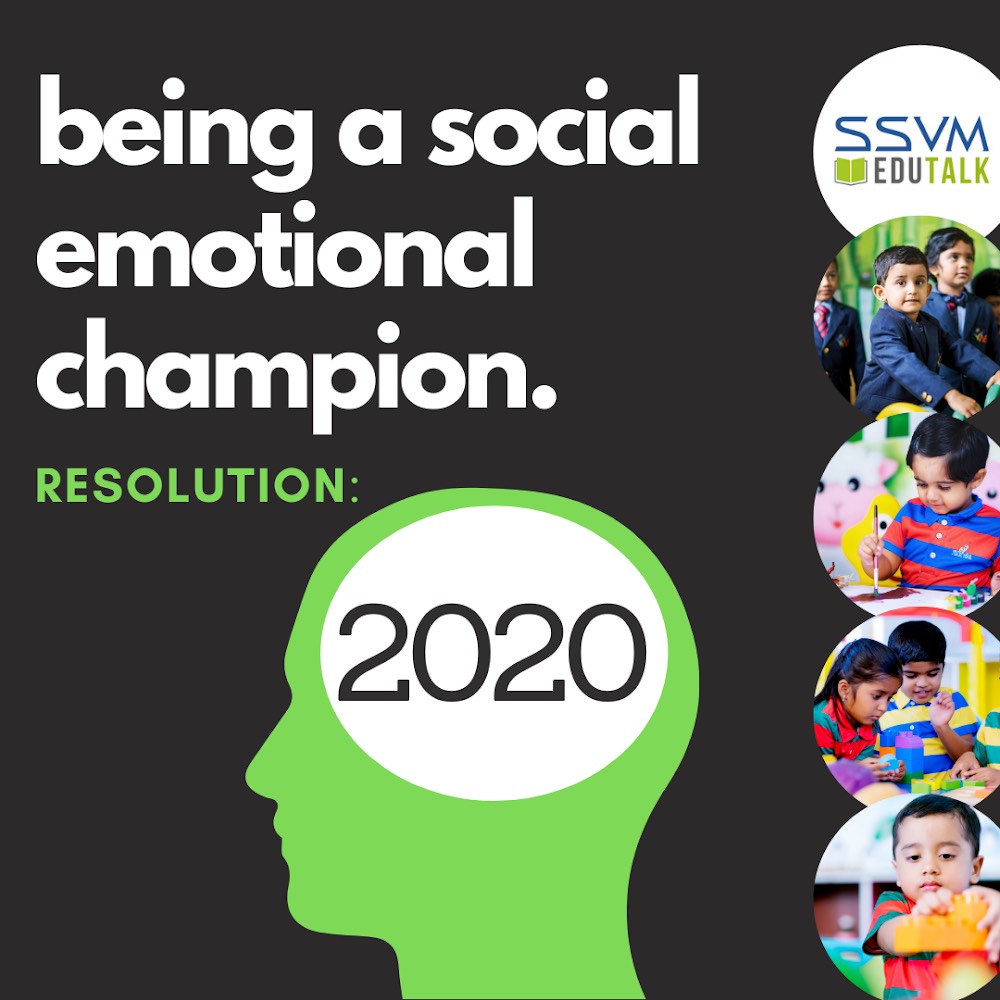It is that perfect time of the year to set your professional goals for teaching such that your relationship with your students evolve allowing them to make more informed, concrete and responsible decisions with respect to their goals in life.
In other words, educators can empower their students by championing Social-Emotional Learning. The Collaborative for Academic, Social, and Emotional Learning (CASEL) defines SEL or Social-Emotional learning as the process that helps children and adults to understand and manage their emotions, set achievable and positive goals, demonstrate empathy for others and take responsible decisions.

As educators, while it is important to advocate for SEL in the learning environment, the more significant concern is how do they initiate the process? Well, it begins by putting the students’ needs and rights foremost in the learning environment. It means that teachers must be sensitive towards children and the behavior around them. It includes pointing at policies without being hesitant, that treats children unfairly leading to inequality, or raising an alarm on finding staff members engaged in discussing behavioral issues of children in front of others. It also means being mindful to whether parents really make an effort to understand the explanations they are being given about their children or school policies and procedures and intervening if they do not. Be it incidents of bullying, social anxiety, harassment, or intimidation, it is imperative that adults speak out against injustice meted out to children subtly or not-so-subtly. Being an SEL champion for students is not easy since it involves concerted efforts from teachers to nurture a culture of kindness, establish trusting partnerships, model, and reinforce positive behavior.
Whatever be the approach to promote SEL; it must start with specific areas of focus to help inspire an educator’s goal-setting mission:
Empower Students
In your learning community, start by cultivating practices that promote inclusivity in your classroom through culturally responsive teaching techniques. Empower every student such that a cohesive community of learners is created by confident and responsible students, high on social and emotional well-being.
Promote Social and Emotional Development
The primary responsibility of nurturing children to become emotionally competent, kind, and respectful of others, rests with the adults. In fact, according to Harvard University’s Centre on the Developing Child, a child’s “environment of relationships” in the initial years of life can actually shape her developing brain’s architecture, creating circuits that can influence academic performance, mental health, and interpersonal skills for the rest of her life. Hence there are multiple benefits of social-emotional and character development programs to help cultivate these inter-personal skills in children.
Using technology with Purpose
Digital learning integration is an evolving work in progress. Since every use of technology should be purposeful, teachers must revisit their strategy for digital learning. A new year could be a great start in evaluating how technology should change the collective learning experience for students. It must improve knowledge retention, encourage individual learning and collaboration.
One of the top schools of Coimbatore, SSVM institutions strongly believes in cultivating an environment that breeds collaboration, critical thinking, complex problem solving, and communication between teachers and students. The institute undertakes various forms of SEL programs from time to time that promotes social-emotional well-being in children.
Conclusion
In a nutshell, being aware of their surroundings to influence the environment positively breeding confidence, responsibility, and kindness in the academic environment for students must be led by educators and teachers. This can be achieved only if the schools put the dignity of the children first and always nurture them with love, care, and respect. Effective SEL programs, after all, aim to promote student’s social-emotional and character development.



